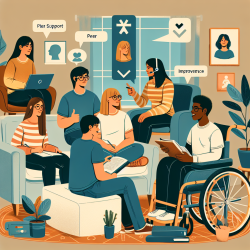The Impact of Criminalization on Abortion-Related Outcomes: A Call for Change
As a practitioner in the field of healthcare, staying informed about the legal and health implications of criminalization in abortion care is crucial. The recent research article titled "The impact of criminalisation on abortion-related outcomes: a synthesis of legal and health evidence" provides a comprehensive analysis of the negative impacts associated with criminalizing abortion. This blog aims to help practitioners improve their skills by implementing the outcomes of this research or encouraging further investigation into this critical issue.
Understanding the Research Findings
The research conducted by de Londras et al. (2022) synthesizes evidence from reproductive health, law, policy, and human rights to address the knowledge gaps related to the health and non-health outcomes of abortion criminalization. It highlights the following key findings:
- Delayed and Unsafe Abortions: Criminalization contributes to delayed access to abortion care, which can lead to unsafe abortion practices and increased maternal mortality and morbidity.
- Opportunity Costs: Women face significant opportunity costs, including financial burdens, stigma, and emotional distress, due to the criminalization of abortion.
- Unlawful and Self-Managed Abortions: The legal restrictions force women to resort to unlawful and self-managed abortions, which are often unsafe and increase health risks.
- Impact on Healthcare Providers: Criminalization places a significant burden on healthcare providers, complicating care pathways and affecting the provider-patient relationship.
Implications for Practice
As healthcare practitioners, it is essential to understand the legal and health implications of abortion criminalization and advocate for changes that align with international human rights standards. Here are some ways to implement the research findings into practice:
- Advocate for Decriminalization: Support policies that aim to decriminalize abortion, ensuring that it is accessible, safe, and of good quality for all women.
- Educate and Train Healthcare Providers: Provide training to healthcare providers on the legal and health aspects of abortion care, emphasizing the importance of evidence-based practices.
- Promote Access to Information: Ensure that women have access to accurate and unbiased information about abortion care, helping them make informed decisions.
- Support Research and Policy Change: Encourage further research on the impacts of criminalization and support policy changes that align with human rights obligations.
Encouraging Further Research
The research by de Londras et al. (2022) provides a foundation for understanding the negative impacts of abortion criminalization. However, further research is needed to explore the effects in diverse settings and among different populations. Practitioners are encouraged to engage in research initiatives and collaborate with policymakers to drive change.
To read the original research paper, please follow this link: The impact of criminalisation on abortion-related outcomes: a synthesis of legal and health evidence.










